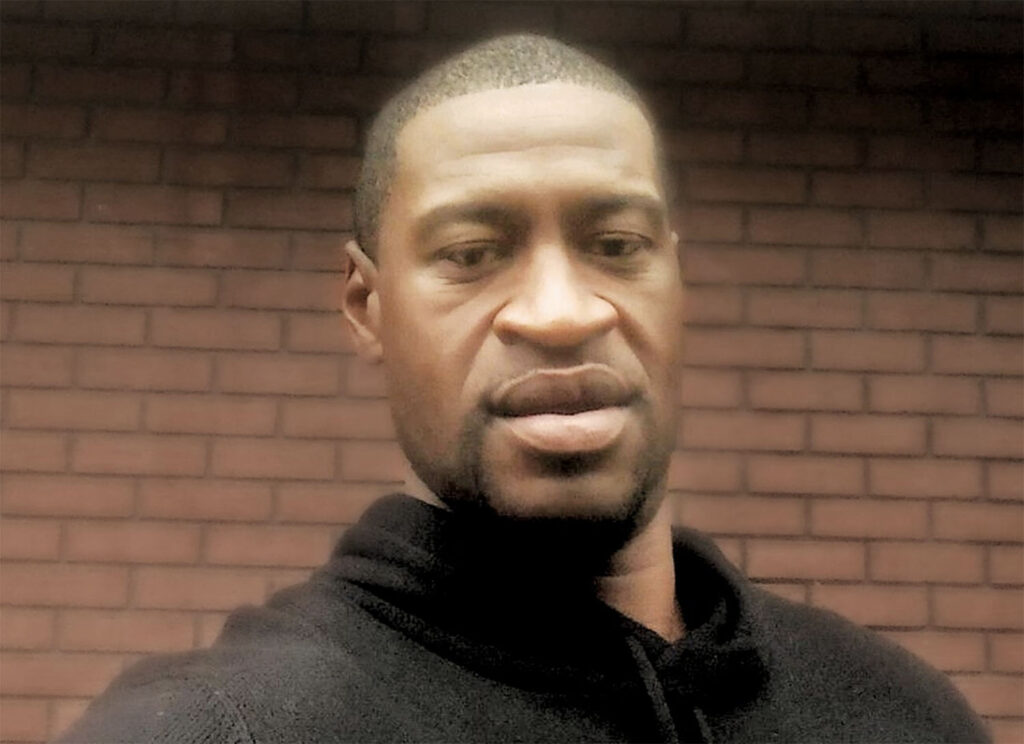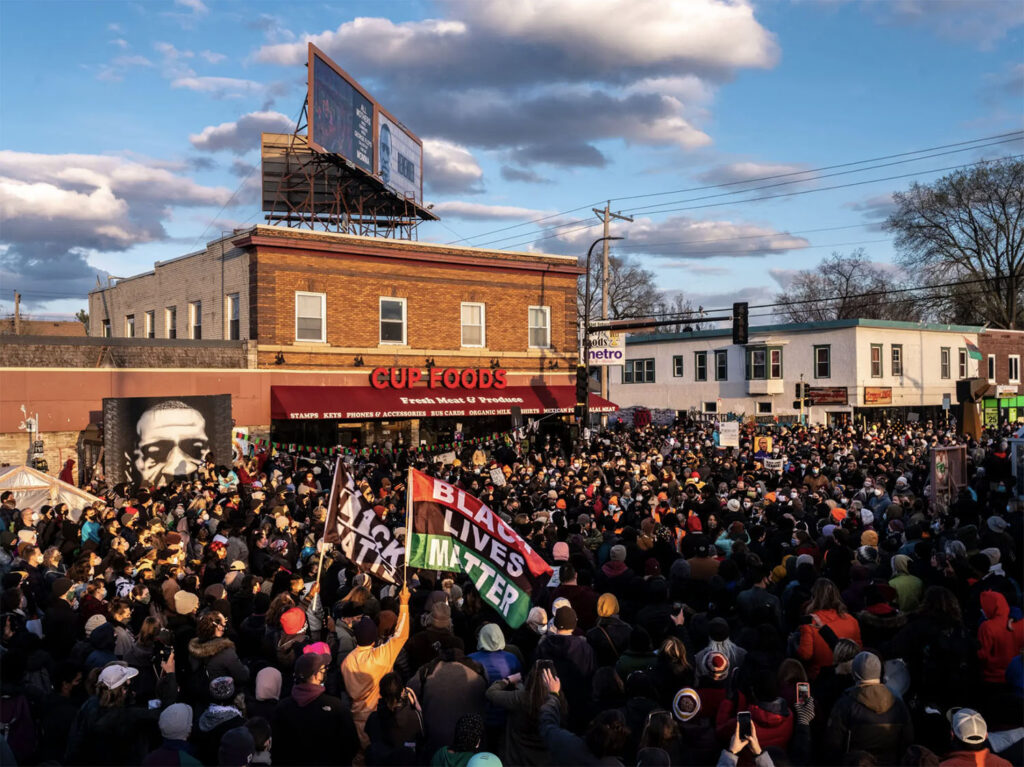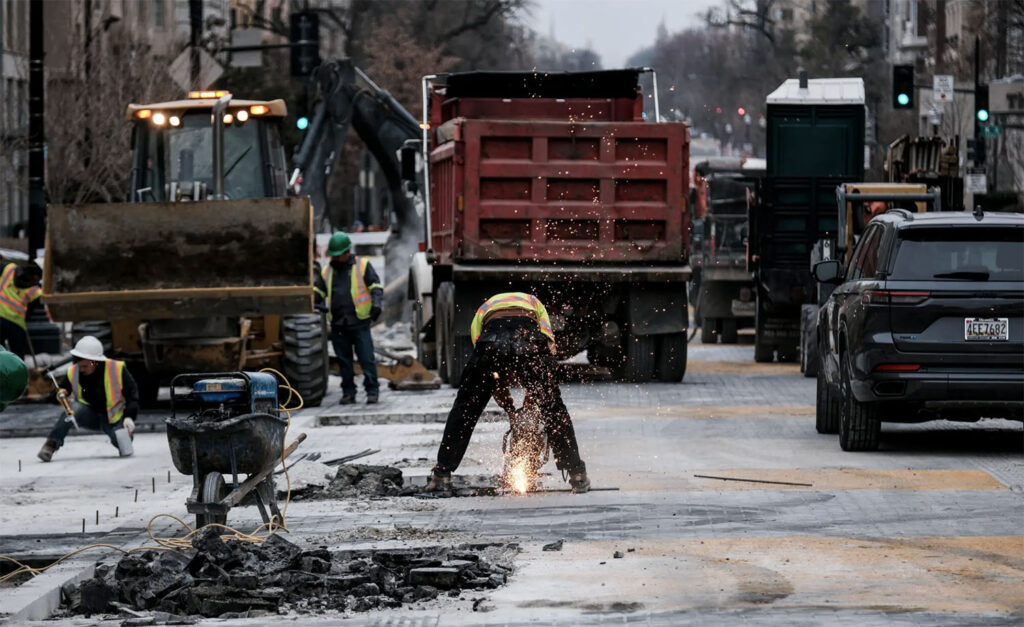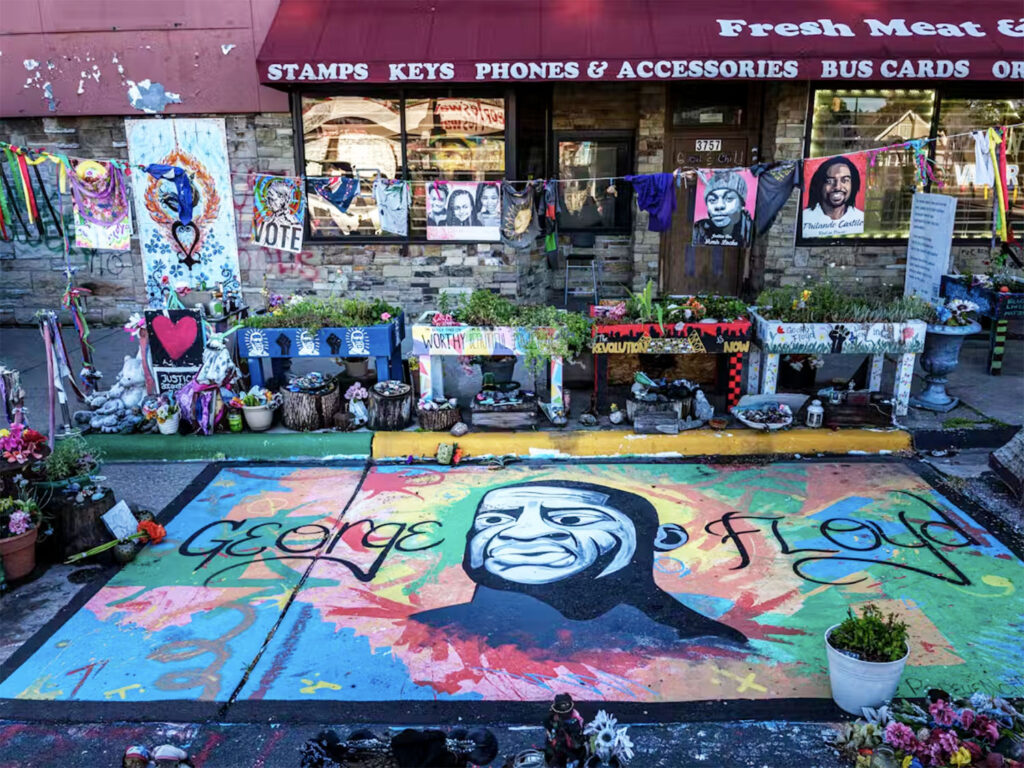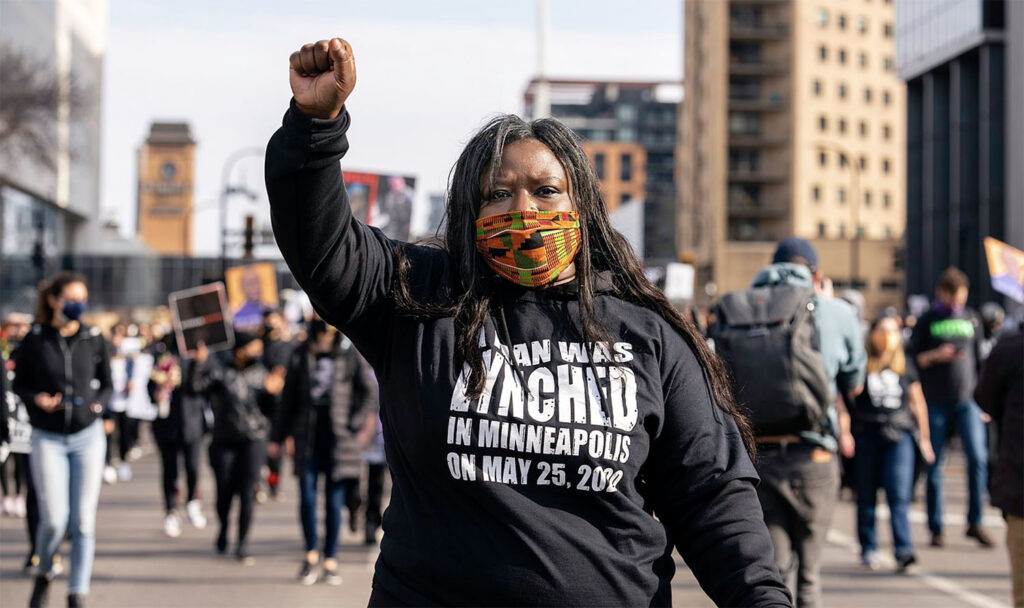By Alliance Communications Coordinator Amy Durr
The video of George Floyd’s murder was everywhere, which was good because the murder of black people by law enforcement had already been going on far too long that day. Many people needed to be awakened to the brutality.
The video was hard to watch because of the cruelty and the disregard for human life. It was all right there in the open and seemingly undeniable. A Minneapolis police officer had murdered a man in full view of his fellow responders, who stopped a small group of bystanders from intervening, but which a brave young girl recorded in the infamous video.
The event was so brazen that even Republicans, law enforcement officials and Donald Trump condemned the act. Minneapolis Police Commander Richard Zimmerman, the Department’s longest tenured officer, testified as a prosecution witness at Chauvin’s trial: “My first thought was: ‘this is a different version of a lynching.’ It’s just unbelievable that these cops lacked basic humanity.”
But now history is being rewritten by Right Wing extremists in real time: Floyd the victim is being labeled as Floyd the felon, while calls for justice face political erasure. What remains of the largest civil rights movement in modern memory?
Five Years After George Floyd’s Murder, What Positive Changes Have Occurred?
As we commemorate the fifth anniversary of George Floyd’s murder, “we remember the millions of people across every state and in dozens of countries who showed up to protest a policing system that commits unnecessary violence, disproportionately against Black people,” says Nicholas Turner President & Director of the Vera Institute of Justice.
The Vera Institute reflects on some positive changes:
- Between 2020 and 2021, states passed more than 140 law enforcement oversight bills intended to increase police accountability and place limits on their use of force
- This month Minneapolis Mayor Jacob Frey said he plans to enforce the reforms limiting police use of force that were adopted after Floyd’s murder, despite the withdrawal of planned federal oversight
- Across the country, an increasing number of jurisdictions are developing civilian-led crisis response programs as alternatives to armed police
- Polling shows that people support new solutions that avoid making police the default solution for societal issues, ranging from addressing mental illness and kids skipping school to homelessness and gun violence
“Cynics say George Floyd’s death didn’t move the needle on race. I disagree,” comments Stephanie Griffith for the Greater Good Science Center. “For millions upon millions in this country and abroad, the mere act of heading out into the streets to demand change was unprecedented.”
What emerged was a cadre of Americans newly aware about, and deeply shaken by, the inequalities upon which our country was founded. I don’t see how any such groundswell can be seen as inconsequential.”
Right Wing Extremists Are Rewriting the Narrative and Reversing DEI
“Five years later, that broad consensus has vanished, as the right-wing media has sought to rewrite what happened to Floyd,” reports Andy Mannix and Liz Sawyer for the Minnesota Star Tribune.
“In the new version, Floyd is a ‘thug’ and a ‘felon’ who died of a drug overdose — not by the knee of veteran Minneapolis police officer Derek Chauvin. Chauvin has been recast as the victim, given an unfair trial by a biased judge, aided by a corrupt prosecution team, dishonest police administration and a fearful jury, all with support from the media, acting in accordance with the will of a violent mob.”
Mannix and Sawyer continue: “This narrative, shaped by popular commentators like Tucker Carlson and Ben Shapiro, and Minnesota-based nonprofit Alpha News, draws attention away from the bystander video of Floyd viewed by millions. Instead, it magnifies and lingers on details previously raised by Chauvin’s defense, such as Floyd’s toxicology report and criminal history, presented as damning revelations that were kept from the public.”
In fact, this March conservative media personality Shapiro began a petition asking President Trump to pardon Chauvin. Tech billionaire and presidential adviser Elon Musk responded to a clip of Shapiro shared on Twitter, adding: “Something to think about.”
Three months after Floyd’s death, Tucker Carlson began to float what would morph into a critical piece of the right-wing media’s narrative: that some footage of the encounter with Floyd had been hidden from the public because it didn’t fit the “official storyline.”
Carlson didn’t stop there – he “also raised the theory that Floyd may have died of a drug overdose.”
Mainstream Media Also Furthers a Negative Narrative
Time and time again, researchers find that “the bulk of news coverage of protests against police brutality tends to focus on protesters’ violence, disruption or sensational actions,” says Danielle K. Brown.
Brown shares with The Conversation:
“Quickly after Floyd’s murder in 2020, it became clear that subjects such as the role of state violence, the sophistication of demands for change and community grief were less likely to make headlines than things such as rioting and lawlessness.
“This pattern is part of what scholars call a ‘protest paradigm’ that explores the relationship between protests, media and the public.
“The paradigm holds that journalism often works against protest movements hoping to change the status quo. The news media’s tendency to emphasize the frivolous, violent or annoying actions of protests rather than the depth of protesters’ demands, grievances and agendas negatively shapes public opinion and affects the public’s willingness to support the movements behind them.”
Shifting Media Reporting to Focus on the Real Issues
Danielle K. Brown continues, “…a good portion of today’s news also presents a different framing. In one five-year anniversary piece, The New York Times described George Floyd Square, the murder-site-turned-place-of-reverance for many activists and local residents, as a “site of protest, art, grief and remembrance.”
National TV and radio networks, along with The Minnesota Star Tribune, have done in-depth interviews with the Floyd family and extensive positive stories about police reform and actions by the residents, such as preservation efforts of street art and murals made by activists after the murder. Other coverage described the complicated process of demanding change and the path that remains ahead.
The Disturbing Efforts to Erase George Floyd: Do Black Lives Still Matter?
“Exactly five years after Floyd’s murder, the nation has seen a drastic reversal of support for racial equity efforts. Commitments made by corporate America and the government have been dialed back or eliminated,” report Kat Stafford, Bianca Flowers and Evan Garcia for Reuters.
They continue, “Diversity, equity and inclusion policies and programs are in the crosshairs of President Donald Trump’s administration. Some of these rollbacks predate his Oval Office return.”
The New York Times states, “The Black Lives Matter movement, kicked into high gear after Mr. Floyd’s murder on May 25, 2020, has given way to the politics of “white grievance” championed by President Trump.”
Despite Backlashes, Steps Forward
“Now we’re in a place where it seems like we’re going backwards, as a result of what’s happening with the Trump administration,” Nekima Levy Armstrong, a civil rights lawyer, past president of the Minneapolis NAACP and a spokesperson for the local Black Lives Matter (BLM) chapter, tells the Guardian.
“We saw laws change in various jurisdictions; we saw more police officers being prosecuted and even convicted, along with vigilantes who had killed Black people – that was a huge shift from the norm,” she continued.
The Guardian points out that in the wake of the convictions for Floyd’s killers, hundreds of police officers left the MPD. Armstrong heralded this:
“You had folks who were there for decades, who participated or who were silent, who I feel are just as guilty, who are part of that baked-in culture of violence and abuse. That to me, gives the department and the city an opportunity to start fresh.”
Author Ibram X. Kendi, a leader in “antiracism” efforts, told The New York Times he still was taking the long view. The “antiracist revolution” has slowed, he conceded, but it was never going to ascend unimpeded.
“I know it became particularly popular in recent decades that there’s this singular arc of racial progress,” said Dr. Kendi. “It’s political rhetoric, but it’s actually not historical reality.”
At the Alliance for Sustainability, we stand even more firmly than ever in the fulfillment of the movement inspired by the murders of George Floyd and so many others. In fact, George Floyd has inspired us to co-create our Campaign for Sustainability, Health, Equity and Kindness (S.H.E. Kindness). Our goal is to bring about fundamental systems change through personal and organizational transformation and impactful public policy.
We will never forget George Floyd and will not back down from centering social justice in everything we do. We’ll continue to support antiracism and Diversity, Equity and Inclusion (DEI) efforts. No justice, no sustainability.

